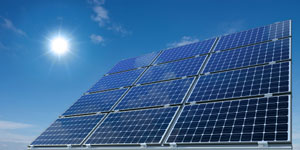Solar Water Heaters as Affordable and Economic Solutions
Download Audio VersionA solar water heater is a device that is used to heat water. It is a convenient and cost-effective way to generate hot water for your house or vacation home.
Types of Systems
Homeowners can choose between two main types of systems – indirect and direct circulation systems. The first variety comprises a heat exchanger, collectors, and pumps. It is a good choice for areas with low temperatures. The second type is made of collectors and pumps only. You can opt for a direct circulation system if you are living in an area where water rarely freezes. There are passive water heating systems such as thermosyphon and collector-storage passive systems. They are more affordable and reliable compared to active systems. The only downside is that they are less efficient. Thermosyphon systems come with a heavy storage tank and collectors. They are more expensive than other solutions but are efficient and reliable. Integral-collector storage systems work best in regions with warm climates and are designed for large households. This is a good choice for homes with considerable hot water needs.
A drainback system is another variety that uses distilled water. It has a separate tank for water and sends it to a second tank found inside the heater. This system is ideal for regions with cold weather.
There are also different types of collectors. The main ones include evacuated tube collectors, collector storage systems, and flat plate collectors. The latter are usually used to heat pools. Evacuated tube collectors contain absorber and glass tubes and are designed for commercial applications. Generally, solar water systems use either evacuated tubes or flat plate collectors.

How They Work
Most devices are equipped with storage tanks. They have good insulation and are large in size. The tank is connected to a collector through an inlet and outlet.
There are one- and two-tank systems that include passageways and tubes and one or two collectors. In a one-tank system, the storage and back-up heater are fitted in a single tank. Water is heated first and then directed to a heater in a two-tank system.
Benefits and Uses
There are many benefits to using solar water heaters, and one is that they help reduce emissions and environmental pollution. They help households to cut their electricity bills and are thus considered an economical solution. While they are more expensive than gas and electric heaters, the investment is worth making. These devices have a useful life of up to 40 years and pay for themselves in about 4 – 5 years. Your electricity bill and use will be cut by about 50 percent. Of course, this depends on whether you live in an area with warm or cold weather.
Because of the savings and many benefits, the value of your house or second home will also increase. You will cut your carbon footprint and might get back the money you have invested. Energy independence is another reason to install a water heater. You will be less dependent on traditional power sources that rely on fossil fuels. Some households even use electricity supplied by their utility company as a backup source. Among the many applications of solar water heating are pool heating, space heating, and hot water for your household.
Financial incentives are an important consideration. Utility companies, governments, and local authorities offer rebates and tax credits.
Maintenance Costs
Unlike other devices, the maintenance costs are relatively low. Manufacturers usually offer a 5- or 10-year warranty. The most important thing that homeowners should watch for is whether there are antifreeze leaks. Antifreeze has a strong, distinctive smell. It this case, you should contact the manufacturer or installer. The contractor should have a valid license. You can contact the licensing board to confirm whether a particular contractor has a valid license and if there are any complaints filed by other consumers.
Other Factors to Consider
Water quality, temperature, and the building regulations in your state or province are important factors to consider. Some regions are prone to earthquakes and other natural disasters. The local authorities have strict regulations regarding rooftop equipment. While you may be able to install small solar panels on your roof, a water heating system may be too large. Water quality is also an important consideration when choosing the right type of system. If water is acidic, you may want to install a passive system. Direct-active, thermosiphon, and batch systems are unlikely candidates if you live in an area with low temperatures (e.g. the northern parts of Russia or Canada). Sun exposure is important and depends on the orientation of your house. Finally, you need electricity for an active system to work. This means that you cannot rely on the system during power outages.
